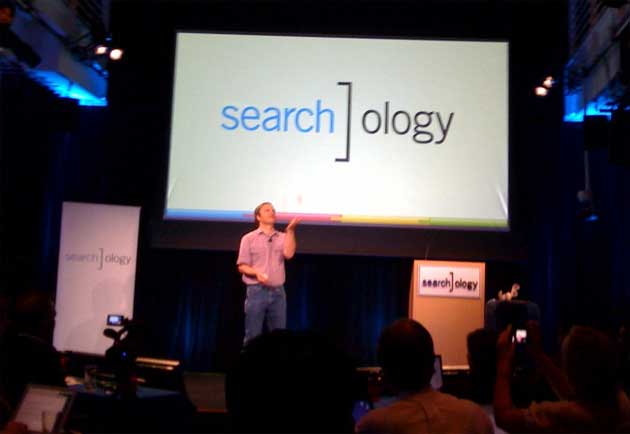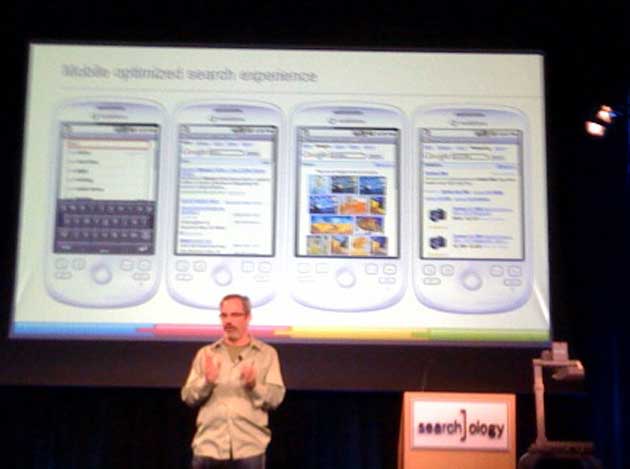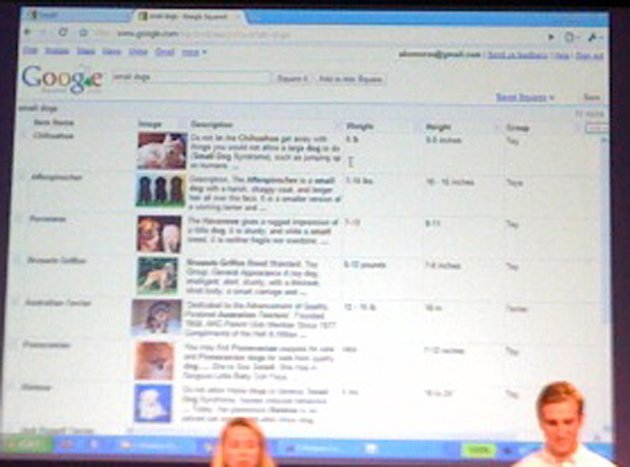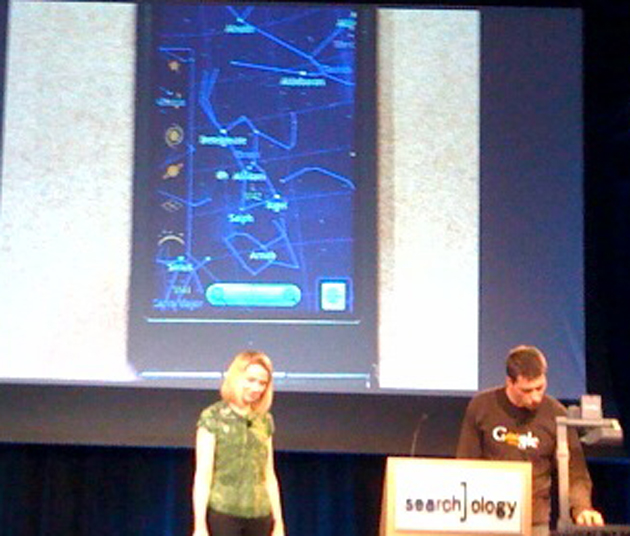
Searchology is a periodic state of the union for Google search (here’s the last one), and we’re here on the ground to see the announcements live.
Less than a month ago the company rolled out major new News and Image search products at a similar press event in San Francisco.
My live notes are below:
First up is Vice President of Core Search, Udi Manber.
He says the 20th century dream was to conquer nature (dams, roads, airplanes, rockets). The 21st centure will be about understanding people (health, communication, education, knowledge). Search is a big part of it, possibly leading the way, he says.
Whatever the user problem, Google needs to fix it. Connection speed, language, etc. Manber is talking about fine tuning search more than anything, including things like bringing weather, sports, flight information, maps and other information into search appropriately to answer questions. Translation of information on the fly is also a key issue.
We’ve made a lot of progress, and you’ll see some more today,” he says.

Next up: Pat Riley, senior search quality engineer. His presentation is called “Making “Did you mean?” even better. He’s talking about the did you mean link at Google and how they’ve improved it.
Example: query for “labor” could mean work, department of labor or childbirth.
Adding spelling to the product to help users. Someone types ipodd, for example. Google suggest ipod instead. In the background Google is sending the incorrect and correct query to the back end to process queries. An alternative solution is to ask the user first and make them click a link, which results in less stress on Google.
Next up is Scott Huffman, Director of Engineering, talking about Mobile Search. Search needs to be fast, relevant, comprehensive and fresh, he says. You should expect all these things on your mobile device too, he says.
Mobile search is growing faster than PC search, he says. It’s the primary way some people access the Internet. And it is inherently local, knows where you are and is with you wherever you are. But there is a challenge with devices – there are hundreds of them with widely varying capabilities. Search is generally difficult to use. Keys are small, or no keys at all.
Mobile search needs to be Complete (all of Google, on the device), Easy (effortless to search and get answers), and local (knows where you are).
Users need to search the whole web and the mobile web (sites optimized for mobile devices).

One thing the mobile team is doing is taking recent logged in searches from a user and making them available on a mobile device (not yet launched, couple of weeks he says). Less typing.
For local search, Google will access your location and will consider than when returning queries. And Google Suggest will actually bring back results for local places (the demo is a local sushi place) even before you hit enter. Click the phone number and call them.
Next up is Marissa Mayer, Vice President Search and User Experience.
Talking about progress Google has made. blogs, images, maps, books, news, video and product search are all now brought into Google universal search to make search better, she says. When it launched two years ago it was brought into only about 2% of search. Now its used much more. 1 in 4 search results have universal search results, she says.
They attempt to layout results in a way that is organized and compact, she says, calling the results page a Bento Box-like interface.
Now she’s talking about (the dreaded) Search Wiki. 40% of searches on any day are repeat searches for a user. The ability to mark them up has proven to be really useful for users. Today they are collecting hundreds of thousands of search wiki annotations per day.
What are the hard unsolved problems in search, Marissa asks:
– Finding the most recent information
– Expressing that you want just one type of result
– Assessing which results are best
– Knowing what you’re looking for
– Expressing your searches in keywords
Launching Google Search Options. Go to home page, do a search on something with recent activity. Get a result page that looks normal. Click show options at the top, which has date based filters, types of results filters and other filters.
Search Options also highlights a timeline that shows the number of results for queries over time. Google extracts date information from web pages and shows the number of results. A different way to visualize results.
Also, Wonderwheel, a quick visual way to explore a topic. You can also use it to refine, filter and view results.
Google Squared is launching later this month in labs. Google Squared returns search results in a spreadsheet format. It structures the unstructured data on web pages. So a search for Small Dogs returns results with names, description, size, weight, origin, etc., in columns and rows.
Google is looking for data structures on the web that imply facts, and then grabbing it for Squared results. “It takes an incredible amount of compute power to create one of those squares,” she says.

Next up is Rich Snippets, which appears to be similar to Yahoo Search Monkey. It brings, for example, review data from CNET Reviews directly into search results (along with date of review). Yelp data is also brought in. For people, LinkedIn data showing location, company and title is presented directly in search results.
Like Yahoo Search Monkey, third party websites can supply Google with structured data that is inserted directly into search results (should Google choose to display it). RDFa and Microformats are both supported.
Next up – an Android application built in John Taylor’s 20% time. Developed in Pittsburg. Star map for Android phone. Shows several thousand of the brightest stars in the sky, as well as the planets. You can enable constellations and drag them around with your finger. Zoom in and out. And since the G1 has GPS, it knows where you are and can show you the night sky exactly from your location. It also knows which direction you are holding the phone. That means as you move the phone over the sky it moves the image to show you what you are looking at. Users can also search for things in the sky and will direct you which way to move the phone so that you are looking at it.
It brings together android, search, and maps and is a 20% project. really impressive. Called SkyMap, launching today on Android market.
wow.
